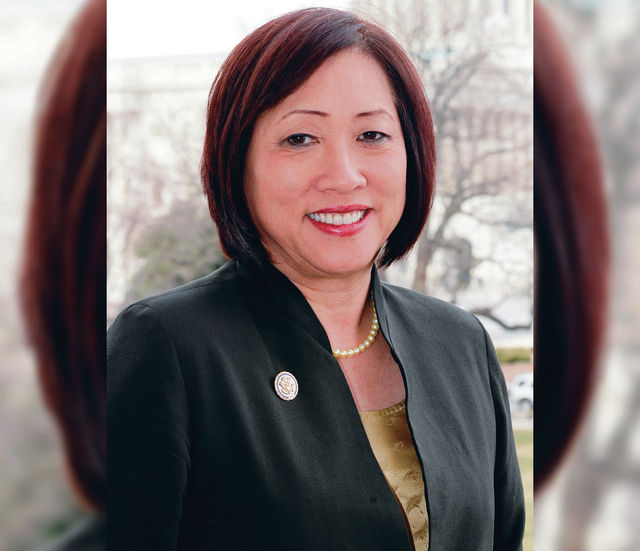ANAHOLA — More than 100 Native Hawaiians gathered at the Anahola Clubhouse Tuesday to hear Colleen Hanabusa trace the history of the Hawaiian Homes Commission Act, putting in context the significance of a pair of newly proposed federal rules that
ANAHOLA — More than 100 Native Hawaiians gathered at the Anahola Clubhouse Tuesday to hear Colleen Hanabusa trace the history of the Hawaiian Homes Commission Act, putting in context the significance of a pair of newly proposed federal rules that aim to govern its enforcement.
It’s a complicated subject, yet one that could have significant impacts on the Native Hawaiian community.
The proposals spell out the roles of the federal and state governments when reviewing exchanges of Hawaiian trust lands and amendments to the 95-year-old law by which the trust exists.
The public comment period for the rule proposals ends July 13.
“The act itself is a good one,” said Hanabusa, the former U.S. representative and state Senate president, who paid out of pocket to come to Kauai as an impartial guide for those who are in the process of forming opinions on the rules. “It is enforcement that is an issue. The state failed — no question the state failed. The territory failed. The federal government failed. The question then becomes what is the law that you want to be able to go forward on, because that’s what this is.”
The 1920 law, sponsored by Prince Jonah Kuhio Kalanianaole, created a 200,000-acre land trust across the Hawaiian Islands to be used as neighborhoods, farms and ranches for Native Hawaiians with a 50 percent blood quantum or more.
But the federal rule-making process that’s usually set into motion following the passage of a new law never happened. Some critics of the way the law has been administered say this lack of rules has created opportunity for mismanagement.
There are more than 20,000 acres of trust lands on Kauai. Some of the land has been developed into homesteads for Hawaiians, and some of it has been leased to non-Hawaiian businesses. Much of it is undeveloped. Meanwhile, there are 4,000 Hawaiians on the wait list.
The oldest Kauai resident on the wait list is 90-year-old Eleanor Mihal of Kekaha. Other beneficiaries have died waiting for land.
The mission of the state Department of Hawaiian Home Lands, which manages the trust, is to develop and deliver land to Hawaiians. The Department of Interior, which proposed the new rules on May 13, has oversight responsibility.
Over the years there have been several state audits that have criticized the DHHL’s management of the trust. Hawaiian Homes commissioners have publicly flagged management practices that they say are on par with corruption.
Hanabusa urged beneficiaries to submit public comments on the rule proposals, as they could function as a framework for better management of the trust.
“I know there are a lot of people who are afraid of what these rules mean, but know that they already exist in the law,” Hanabusa said. “I think you’ve got to look at the rules as an opportunity to say, ‘Look, DOI, if you’re going to step in and monitor and watch over us and watch over what DHHL does, then you have to clearly establish that you have oversight over us and you have to clearly establish what your responsibilities are. And know that there’s a difference between DHHL and the beneficiaries.”
Anahola resident Aggie Keaolani Marti-Kini said it’s not only the DOI and DHHL, but also the Native Hawaiian advocacy groups advocating for the federal rule proposals that could benefit from improved oversight.
“Everybody needs oversight and to be transparent,” she said. “I think the DHHL needs to wake up as well and start moving, otherwise other groups are going to move in and make sure the Hawaiians start moving back on their land.”
While many Hawaiians agree that their trust lands have been poorly managed, not all agree that creating new federal rules is a good solution.
A deep distrust of the federal government — born from the controversial 1893 overthrow of Hawaii’s monarchy — has many Hawaiians questioning the proposed rules’ intentions.
Homesteader Shane Cobb-Adams is one of them.
“The question we need to ask ourselves is, ‘Do we want to have a new bureaucratic layer where people in Washington, D.C., who aren’t elected by us, get the final say on our activities, land exchanges and whatever else they want to propose in the coming years?’” he said. “As a people, as kanaka, have we gotten treated fairly by America?”
For the first time that evening, there was an answer to which everyone could agree.
A resounding “No!” reverberated across the clubhouse.
•••
Brittany Lyte, enviromental reporter, can be reached at 245-0441.


